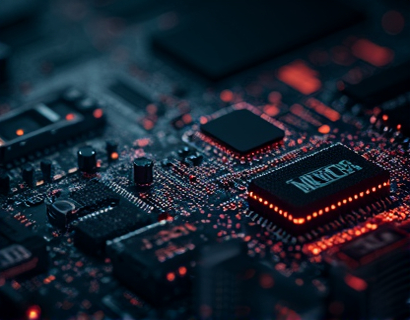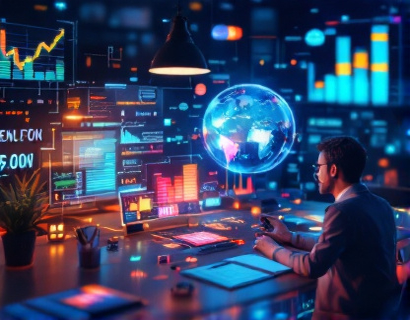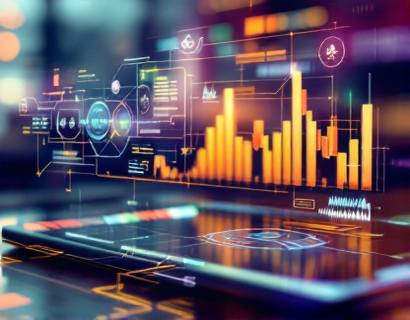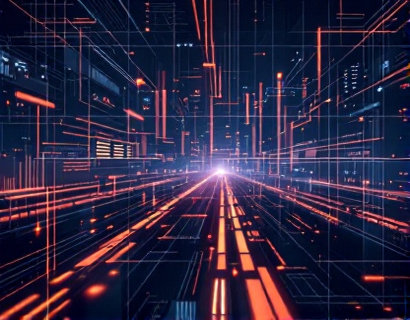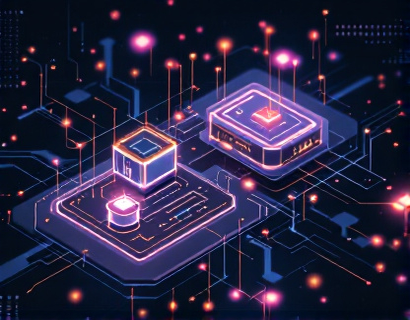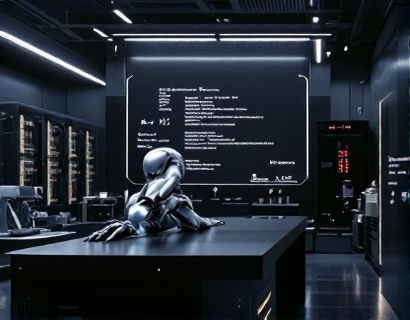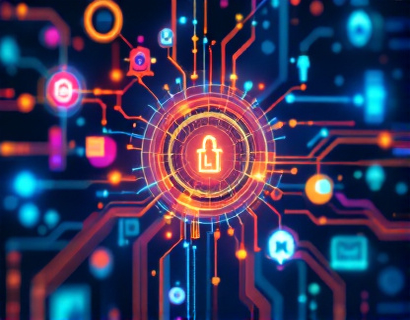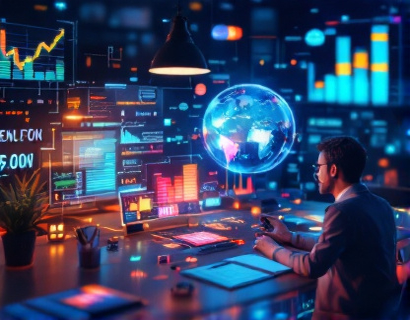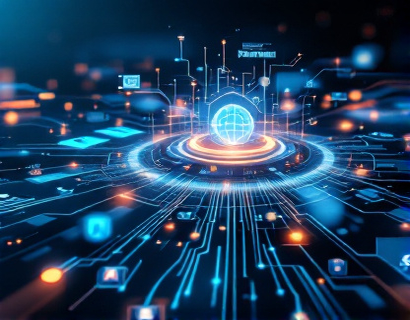Unleashing Next-Gen Productivity with Advanced Digital Solutions: The Synergy of Crypto and AI
The intersection of cryptocurrency and artificial intelligence (AI) is paving the way for unprecedented advancements in digital productivity. This synergy is not just a technological curiosity but a powerful force reshaping how we work, interact, and innovate. For tech professionals and enthusiasts, understanding and leveraging this convergence is essential to stay ahead in the rapidly evolving digital landscape. This article delves into the latest tools and applications that harness the combined potential of crypto and AI, offering a comprehensive guide to maximizing digital productivity and fostering innovation.
The foundation of this transformative power lies in the unique properties of blockchain technology and the computational prowess of AI. Blockchain provides a decentralized, secure, and transparent framework for transactions and data management, while AI brings intelligent automation, predictive analytics, and enhanced decision-making capabilities. When combined, these technologies create a synergistic effect that amplifies their individual strengths, leading to more efficient, secure, and intelligent digital solutions.
Enhancing Security and Transparency
One of the most significant benefits of integrating crypto and AI is the enhancement of security and transparency in digital processes. Blockchain's immutable ledger ensures that data once recorded cannot be altered without consensus, making it an ideal platform for secure transactions and data storage. AI, with its advanced algorithms, can monitor and analyze blockchain data in real-time, detecting anomalies and potential security threats before they become issues. This dual-layer security approach is particularly valuable in industries handling sensitive information, such as finance, healthcare, and supply chain management.
For instance, AI-driven security protocols can automate the detection of fraudulent activities by analyzing patterns and behaviors on the blockchain. Smart contracts, self-executing contracts with the terms directly written into code, can be enhanced with AI to adapt and respond to changing conditions dynamically. This not only ensures the integrity of transactions but also reduces the need for intermediaries, lowering costs and increasing efficiency.
Optimizing Operational Efficiency
AI and crypto technologies are revolutionizing operational efficiency across various sectors. In the realm of supply chain management, AI can optimize logistics by predicting demand, managing inventory, and streamlining transportation routes. When integrated with blockchain, these processes become even more robust, as every step in the supply chain is recorded transparently and immutably. This transparency allows all stakeholders to track products from origin to destination, ensuring authenticity and reducing fraud.
In the financial sector, AI-powered trading algorithms can analyze vast amounts of market data to make informed investment decisions. Coupled with blockchain, these algorithms can execute trades on decentralized exchanges, eliminating the need for traditional brokers and reducing transaction costs. The combination of AI's analytical capabilities and blockchain's decentralized nature creates a more efficient and fair trading environment.
Boosting Productivity with Intelligent Automation
Intelligent automation, driven by AI, is a game-changer for boosting productivity in both corporate and individual settings. AI can automate repetitive and time-consuming tasks, freeing up human resources to focus on more strategic and creative work. In a crypto-enhanced environment, this automation can be further secured and optimized through blockchain technology.
For example, AI can manage and optimize cryptocurrency portfolios by continuously monitoring market conditions and adjusting asset allocations in real-time. Smart contracts can automate the execution of trades based on predefined criteria, ensuring that investments are managed efficiently and securely. This level of automation not only saves time but also reduces the risk of human error, leading to more consistent and reliable outcomes.
Enhancing User Experience through Personalization
AI's ability to analyze vast amounts of data and derive insights makes it an excellent tool for personalizing user experiences. In the context of crypto and digital services, this personalization can significantly enhance user engagement and satisfaction. AI algorithms can analyze user behavior, preferences, and historical data to provide tailored recommendations and services.
For instance, a crypto-focused platform can use AI to suggest relevant coins or tokens based on a user's investment history and risk tolerance. Similarly, AI can personalize the user interface and features of a digital wallet, making it more intuitive and user-friendly. This level of personalization not only improves the user experience but also fosters greater loyalty and trust in the platform.
Fostering Innovation through Collaborative Ecosystems
The convergence of crypto and AI is not only about individual tools and applications but also about creating collaborative ecosystems that foster innovation. Platforms like Ucosystem, which leverage the power of both technologies, provide developers and businesses with a rich environment to build and deploy advanced digital solutions. These ecosystems encourage collaboration, knowledge sharing, and the rapid prototyping of new ideas.
Developers can access a wide range of AI-powered tools and blockchain-based services to create innovative applications that address real-world problems. For example, a decentralized finance (DeFi) platform can integrate AI-driven credit scoring to provide more accessible and fair lending options. Such collaborations accelerate the development of cutting-edge solutions and drive the adoption of new technologies.
Challenges and Considerations
While the potential of combining crypto and AI is immense, there are several challenges and considerations that must be addressed. One of the primary concerns is the regulatory landscape, which is still evolving and varies significantly across different jurisdictions. Ensuring compliance with regulations while leveraging the benefits of these technologies requires a deep understanding of legal frameworks and proactive engagement with policymakers.
Another challenge is the technical complexity involved in integrating AI and blockchain systems. Developers need to possess a broad skill set, including knowledge of both AI algorithms and blockchain architecture. Additionally, the scalability and interoperability of these systems are critical for widespread adoption. Addressing these technical hurdles is essential for building robust and user-friendly applications.
Future Prospects
The future of crypto and AI is bright, with numerous opportunities for growth and innovation. As technology continues to advance, we can expect even more sophisticated tools and applications that further enhance digital productivity. The integration of AI with other emerging technologies, such as the Internet of Things (IoT) and quantum computing, will create new possibilities for seamless and intelligent digital experiences.
For tech professionals and enthusiasts, staying informed about the latest developments in both crypto and AI is crucial. Participating in communities, attending conferences, and engaging in continuous learning will ensure that you are well-equipped to harness the full potential of these transformative technologies. The synergy between crypto and AI is not just a trend but a fundamental shift in how we approach digital solutions, and being at the forefront of this movement will undoubtedly lead to greater productivity and innovation.




